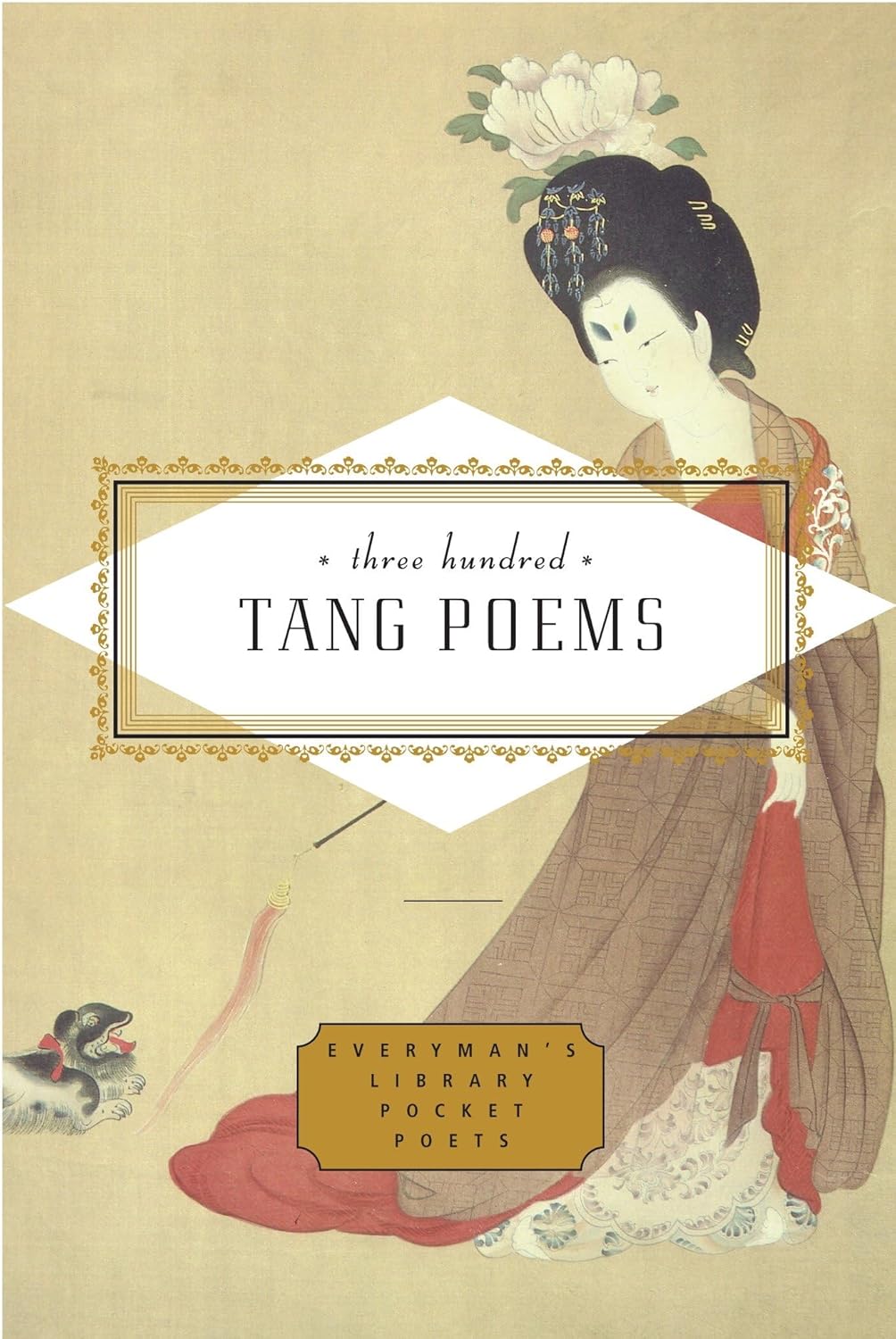Book Summary
Three Hundred Tang Poems, translated by Peter Harris, is a definitive English-language edition of the most celebrated anthology from China’s golden age of poetry (618–907 AD). This collection, originally compiled in the 18th century by scholar Sun Zhu, features works from literary giants like Li Bai, Du Fu, and Wang Wei, alongside lesser-known voices. Harris organizes the poems by poet (in alphabetical order) and then by traditional forms—ancient verse, regulated verse, and quatrains—offering a structured yet fluid reading experience. The poems span themes of nature, love, war, and existential reflection, capturing the Tang Dynasty’s cultural zenith in concise, evocative language .
Readers will find Harris’ translations accessible yet faithful to the original texts’ lyrical precision. While the Everyman’s Library edition lacks extensive scholarly annotations (a noted critique :cite[7]), its portable design and elegant presentation make it ideal for both casual readers and poetry enthusiasts. The collection’s emotional range—from Li Bai’s exuberant odes to wine to Du Fu’s somber meditations on war—creates a mosaic of human experience that transcends time and culture. Some may wish for more contextual notes, but the poems’ beauty stands powerfully on its own .
Key Themes
Nature dominates these poems, serving as both backdrop and metaphor. Tang poets used landscapes—moonlit rivers, misty mountains, blooming chrysanthemums—to explore universal emotions like longing, joy, and melancholy. As one reviewer notes, the poems resemble Chinese brush paintings, where “negative space is provided by descriptions of nature” . This focus on the natural world often veils deeper political or personal sentiments; for instance, Du Fu’s descriptions of war-torn villages subtly critique societal decay, while Wang Wei’s tranquil scenes reflect Buddhist detachment .
Another pervasive theme is transience. Many poems lament the passage of time, the distance from loved ones, or the inevitability of aging. Separation is a recurring motif, echoing the vastness of Tang-era China and the isolation of bureaucrats posted to remote regions. Yet, there’s also celebration—of friendship, wine, and artistic creation. The anthology’s emotional core lies in its balance of sorrow and joy, often within the same poem, as seen in Li Shangyin’s bittersweet verses .
What Makes It Unique
Harris’ translation distinguishes itself through clarity and rhythm. Unlike older, more academic versions, his renditions prioritize readability without sacrificing poetic density. For example, his take on Li Qi’s Something Told as of Old—a poem about frontier soldiers—captures both the brutality of war and the soldiers’ homesickness in stark, vivid lines . The Everyman’s Library edition also stands out for its physical design: a compact, clothbound volume that’s as visually appealing as it is portable, fitting neatly into a coat pocket or purse .
The anthology’s structure is another strength. By grouping poems by author rather than theme, Harris allows readers to trace individual poetic voices. This approach highlights contrasts, such as Li Bai’s romanticism versus Du Fu’s realism. However, the lack of biographical or historical context (aside from minimal endnotes) may frustrate those new to Tang poetry. A fuller introduction or glossary would have enriched the experience .
Reader Reactions
Readers praise the collection’s emotional resonance and physical beauty. One Amazon reviewer calls it “a brilliant collection of classic Chinese poetry,” noting its “unmatched simplicity” . Goodreads users highlight its accessibility, with one stating, “The poems are short, compact, and easily readable in Peter Harris’ skilled translation” . The book’s melancholic tone resonates deeply; as a blogger observes, the poems feel “elegiac, like a sunset or the dying days of spring” .
Critiques are rare but pointed. Some wish for more scholarly apparatus, like the “detailed notes” found in academic editions . Others note occasional unevenness in translation quality—for instance, a reviewer felt Harris’ versions of Du Fu paled next to other translators’ work . Despite this, the collection maintains a 4.5-star average on retail sites, with many calling it a “treasure” for poetry lovers.
About the Author
Peter Harris is a scholar of Asian history and literature, holding a Ph.D. from Monash University and a degree in classical Chinese from Oxford. His career spans academia and cultural diplomacy, including roles as a Ford Foundation representative in China and a professor at Nanjing University. Now a Senior Fellow at Victoria University of Wellington, Harris has edited several Everyman’s Library volumes, including The Art of War and Zen Poems .
His expertise shines in this translation. Harris’ deep understanding of Tang-era idioms and cultural nuances allows him to bridge East and West effectively. As a translator, he avoids overly florid language, opting for clarity that mirrors the originals’ concision. This approach aligns with his goal, stated in the foreword, to make these poems “accessible to the general reader” while preserving their literary integrity .
Memorable Quotes
“Looking back, we cannot see the people of the past; / Ahead of us, we cannot see those who are yet to come. / I muse on heaven and earth, immense and enduring, / And lonely, engulfed by sorrow, my tears fall.”
“The sun at dusk is immeasurably fine / Or it would be, but for the coming twilight.”
